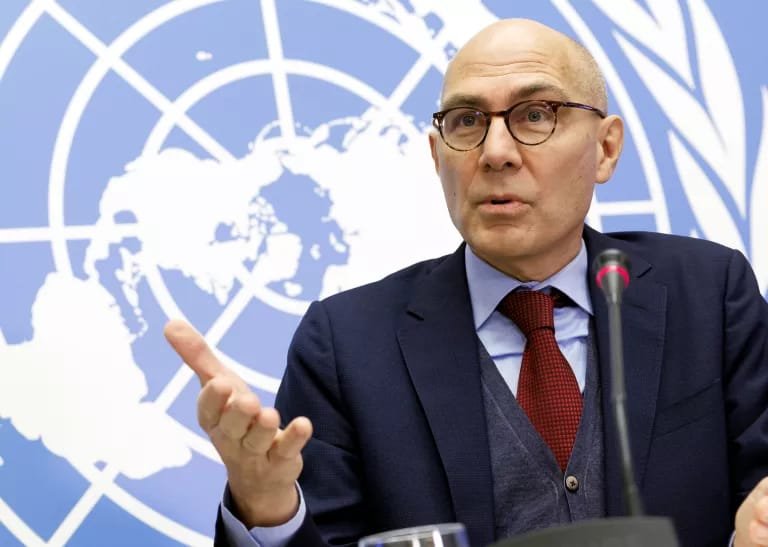Geneva, 8 July 2023 (TDI): United Nations High Commissioner for Human Rights, Volker Türk in the annual panel discussion at the 53rd session of the United Nations Human Rights Council (UNHRC) said climate change is a human rights issue.
According to Türk, Global heating is a burning human rights issue, as extreme weather and climate disasters threaten humanity’s universal right to food.
Furthermore, the United Nations High Commissioner for Human Rights noted that the next generations must not experience the current climate change challenges. Hence there is an urgent need to address climate change.
Imploring the Council members to employ decisive measures in this regard, Türk said, “I ask every member of this Council to take this clear message out of the Palais des Nations and into every aspect of their work.”
Also Read: UN Reports a connection between Climate Change and Gender Inequality
Leadership Problem
Türk warned that on the world’s current trajectory, water, air, food, and human life would be unrecognizable, with an average temperature rise soaring to 3°C by the end of the century, well above the 1.5°C limit, as outlined in the landmark Paris Agreement.
From the foregoing, the UN High Commissioner emphasized that despite the alarm bells going off, world leaders were still not acting with the determination required and getting “stuck in the short term.” “If this is not a human rights issue, what is?”, he asked.
Impediment on the Right to Food
Türk, in his statement, submitted that the right to food was “comprehensively threatened” by climate change and recalled that there had been a 134 percent increase in climate-fuelled, flood-related disasters since the turn of the century.

The Way Forward
According to the High Commissioner, with millions going hungry in countries that contributed “next to nothing” to the industrial processes which are “killing our environment and violating rights,” Türk re-emphasized the urgency of ending fossil fuel subsidies.
Additionally, he stressed the need to transform international development and financing institutions into “engines of climate action”, and make this November’s COP28 conference a “decisive game-changer.”
Testimony Omole is a Conflict Analyst at the Conflict Research Consortium for Africa. He is an alumnus of the Department of Political Science, Kogi State University, Anyigba, Nigeria. He was awarded the 2022 Certificate of Excellent Performance by the Knowles Educational and Charitable Trust for International Leadership, Atlanta, USA. His research interests include conflict, the nexus between conflict and poverty, and the role education plays in peacebuilding. Email: omoletestimony2016@gmail.com








